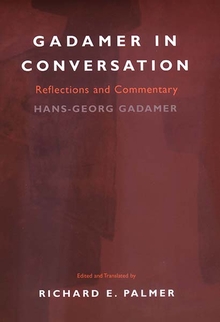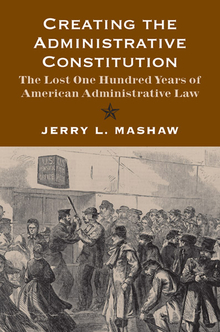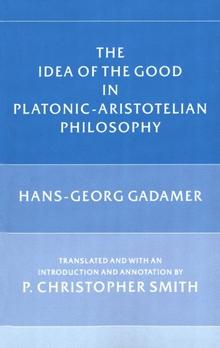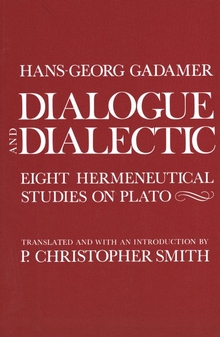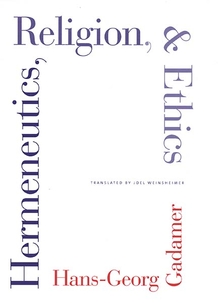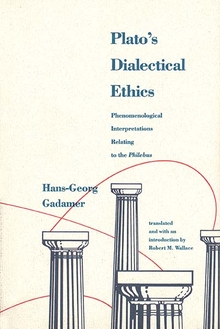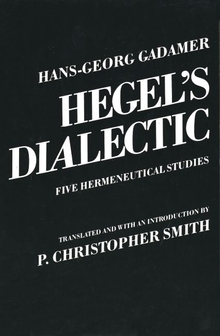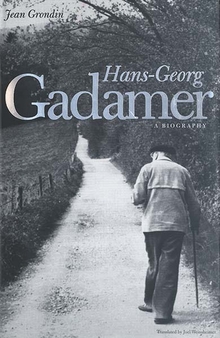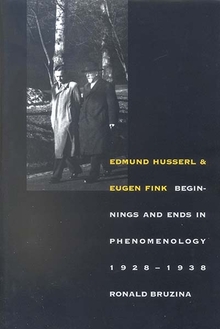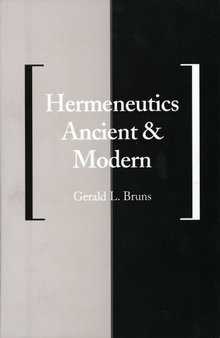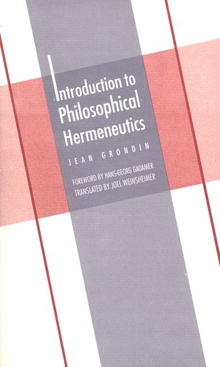Gadamer in Conversation
WARNING
You are viewing an older version of the Yalebooks website. Please visit out new website with more updated information and a better user experience: https://www.yalebooks.com
Hans-Georg Gadamer; Edited and translated by Richard E. Palmer
This volume presents six lively conversations with Hans-Georg Gadamer (born 1900), one of the twentieth century’s master philosophers. Looking back over his life and thought, Gadamer takes up key issues in his philosophy, addresses points of controversy, and replies to his critics, including those who accuse him of having been in complicity with the Nazis. A genial and direct conversationalist, Gadamer is here captured at his best and most accessible.
The interviews took place between 1989 and 1996, and all but one appear in English for the first time in this volume. The first three conversations, conducted by Heidelberg philosopher Carsten Dutt, deal with hermeneutics, aesthetics, and practical philosophy and the question of ethics. In a fourth conversation, with University of Heidelberg classics professor Glenn W. Most, Gadamer argues for the vital importance of the Greeks for our contemporary thinking. In the next, the philosopher reaffirms his connection with phenomenology and clarifies his relation to Husserl and Heidegger in a conversation with London philosopher Alfons Grieder. In the final interview, with German Nazi expert Dörte von Westernhagen, Gadamer describes his life as a struggling young professor in Germany in the 1930s and refutes accusations of his complicity with the Nazis. These conversations are a lucid introduction for readers new to the philosopher’s thought, and for experts they present an invaluable commentary on Gadamer’s most important themes.
The interviews took place between 1989 and 1996, and all but one appear in English for the first time in this volume. The first three conversations, conducted by Heidelberg philosopher Carsten Dutt, deal with hermeneutics, aesthetics, and practical philosophy and the question of ethics. In a fourth conversation, with University of Heidelberg classics professor Glenn W. Most, Gadamer argues for the vital importance of the Greeks for our contemporary thinking. In the next, the philosopher reaffirms his connection with phenomenology and clarifies his relation to Husserl and Heidegger in a conversation with London philosopher Alfons Grieder. In the final interview, with German Nazi expert Dörte von Westernhagen, Gadamer describes his life as a struggling young professor in Germany in the 1930s and refutes accusations of his complicity with the Nazis. These conversations are a lucid introduction for readers new to the philosopher’s thought, and for experts they present an invaluable commentary on Gadamer’s most important themes.
Richard E. Palmer is emeritus professor of philosophy and religion at MacMurray College, Jacksonville, Illinois.
“Scholars will greatly welcome the six important interviews that Palmer has selected and translated here on Gadamer and his work. . . . This is highly recommended for any collection that supports contemporary Continental philosophy.”—Choice
“This book in English translation will be a good introduction to Gadamer and to hermeneutics—not only for beginning students but also for our ‘non-continental’ colleagues in philosophy. . . . All the introductions, bibliographies and appendices add up to a good frame for a lovely picture.”—Graeme Nicholson, Philosophy in Review
ISBN: 9780300172232
Publication Date: December 15, 2001
Publication Date: December 15, 2001
188 pages, 5 1/2 x 8 1/2
illus.
illus.

